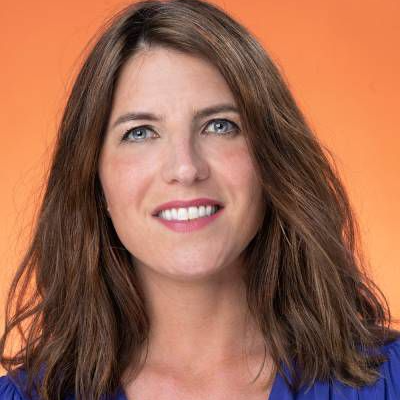Oh, the stories Aaron Day can tell.
There was the night he held hands with Rosa Parks. Or when a fight broke out among gangsters and Billy the Greek punched someone. Or the visits from Liberace, who always showed up at midnight, hours after The Prime Rib closed.
As the longest-serving waiter at The Prime Rib, which is itself one of Baltimore’s oldest restaurants, Day has developed a mythology among some of the city’s most high-profile and well-heeled diners. At a place where it’s easy to spend $200 per person or more on dinner, many guests come specifically to see him.
“Aaron is an institution,” said civil rights attorney William H. “Billy” Murphy, whose office used to be located by the restaurant on Calvert Street. Day, charismatic and committed to his craft, “has a powerful presence,” Murphy said. “He’s untouchable.”
“He’s the greatest waiter in Baltimore,” said sports commentator Jimmy Patsos, who sat at the bar Friday evening. Patsos’ wife died last year, but she always used to tell him, “Let’s go see Aaron at the Rib,” Patsos recalled. “It was her favorite place.”
“Aaron’s the most irreplaceable person,” said Leah Volpe, Day’s coworker and the first female server at the Baltimore restaurant. Whether he’s waiting on celebrities or somebody’s grandparents, Day serves them all with equal care, she said.
Read More
But over five decades, the 67-year-old who has served a lengthy roster of icons has become one in his own right.
‘I’m going to work’
The middle child of three boys, Day grew up in Edmondson Village. His mother, Delores, frequently brought him along to her work as a housekeeper for wealthy homes in the Guilford area. Following her around in mansions would set the tone for his long career: He knew how to conduct himself around the wealthy, he said.
On Sept. 10, 1973, Day got a job bussing tables at The Prime Rib, taking the place of a friend who quit to focus on school. The 15-year-old made around $30 per day, his paycheck helping to cover family bills as his parents went through a divorce.
But each day, he’d go to the bank to deposit $5 into his savings. Within a year, he had enough to buy a 1970 Lincoln Continental. In those early days, police constantly pulled him over, suspicious of the Black teen with a large Afro behind the wheel of a fancy car. But the job “kept me out of trouble,” Day said. While his high school friends were stealing hubcaps, Day would tell them, “I don’t have time for that. I’m going to work.”
After 7½ years as a busser, he was finally promoted to server. The new job’s dress code required him to cut his hair and buy his first of many tuxedos. He didn’t care: He was making double or even triple his previous salary, and saving a fortune. The excitement was just beginning.
‘Who you calling a tramp?’
Only the third Black waiter in Prime Rib history, Day said his presence offered assurance to the restaurant’s high-profile Black clientele that they would be treated with the respect they deserved. “They felt a little at ease,” he said. Through the decades, Day has helped recruit additional Black employees, including the restaurant’s current chef, Craig Brown Jr.
When civil rights icons came to visit Baltimore over the decades — people like Harry Belafonte, Julian Bond, Ralph Abernathy and Maya Angelou — they all ate at the North Calvert Street steakhouse. Many were guests of Dr. Levi Watkins, a pioneering Johns Hopkins heart surgeon and activist who was also one of Day’s best customers. “I knew Levi for 40 years,” Day said, and he would call Watkins when someone important came in. The surgeon would stop what he was doing and come down to the restaurant.
In turn, Watkins and his friends treated Day like part of their family. Day recalls sitting at the table with Parks, her hands in his, and escorting her outside after dinner. “This car pulled up in front of the restaurant,” Day said. Someone in the car shouted: “That woman right there looked like Rosa Parks.” Day informed them that it was her. The passengers jumped out of the car and bowed down to her on the sidewalk.
Muhammad Ali became a Prime Rib regular for a time, visiting every few months with friend and business partner Ronald Shakir, who ran a mosque off Druid Hill Avenue. Shakir always called ahead to make sure Day would be their server. Ali was “a jokester,” Day says. A customer once ran up to the boxer for an autograph shouting, “Champ! Champ!” Ali’s retort: “Who you calling a tramp?”
The job offered Day glamour, but it also offered him something even more important: stability.
‘It won’t take long’
Today, Day is quick to offer investing advice, presenting a handwritten list of stocks he recommends, including reliable cryptocurrencies and cannabis firms. His customers, he said only half-joking, could pay for their dinner at The Rib with the money they make from his recommendations.
He still carries the memories from when his family’s West Baltimore home went up for auction during divorce proceedings. His mother had a “nervous breakdown” and was hospitalized. After that, Day took on the responsibility of caring for her and found an apartment for the two of them in Woodlawn. He became even more cautious about saving money and investing it wisely
His parents’ divorce also put him off from ever marrying, though he has been with his partner, Rhonda Jones, for over 40 years. They have two children together and three grandchildren, but live in separate homes. He’s proud that his years of steady work allowed him to provide for his family, including his older brother and mother, who now lives in a nursing home. He sends his 13-year-old granddaughter a weekly allowance.
While he’s devoted to his family, Day’s other passions beyond work and investing have fallen by the wayside over the years. He loves music and owns a couple guitars and an 800-watt amplifier, but hasn’t made good use of them. “I never could really practice, right? Because I was working all the time,” he said. But he has no regrets. He’s traveled, met celebrities and spent wisely. He’s not a millionaire — yet. “I’m working on it. It won’t take long.”
Though Day has worked at The Prime Rib for more than half a century, he has no plans to retire. “I still want to hang in there if my legs hold up,” he said. He drinks a tablespoon of extra virgin olive oil before every shift, along with vitamins to improve his strength.
But in recent years, The Prime Rib has slowed down a bit, and so has Day. He seats fewer tables, and his section is in the main dining room, closer to the kitchen, so he doesn’t need to walk as far. During a recent dinner service, he didn’t have his first customers until 7 p.m., though he’d arrived at 3. But he was in no hurry. The house band, Jump Street, played another tune. In a few minutes, Day would join in on backup vocals between courses, singing an R&B version of The Carpenters’ “Close to You.”
For now, he sat by the piano in his tuxedo, smiling serenely. After more than 50 years, there are few places he’d rather be.
Correction: A caption has been updated to correct the spelling of Ellen and Robert Wingert's surname.




Comments
Welcome to The Banner's subscriber-only commenting community. Please review our community guidelines.